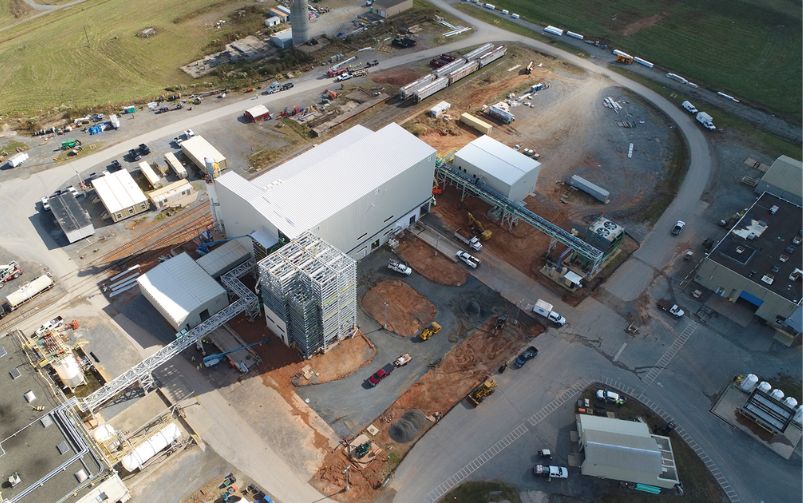Leaders from four northern Ontario First Nations said the Ontario government is not adequately consulting them on mining projects at a press conference at Queen's Park. Courtesy of Wikimedia Commons
Four Ontario First Nations called out the provincial government for failing to adequately consult with them on mining activity near their communities as the province seeks to amend the Mining Act to fast-track the time it takes to get mines built.
Leaders of the Neskantaga, Grassy Narrows, Muskrat Dam and Kitchenuhmaykoosib Inninuwug (KI) First Nations also called out the steep increase in staking on their territories over the past few years during a March 29 press conference at Queen’s Park.
“Right now, you see the government fast-tracking their legislative agenda to access our traditional homelands, and that’s just unacceptable,” said Neskantaga Chief Wayne Moonias. “We’ve been very consistent with our position – until such time as we provide free, prior and informed consent to plans on our homelands, they will not be.”
Neskantaga is one of several First Nations that will be impacted by mineral development in the Ring of Fire region in the James Bay lowlands of northern Ontario, and one of the access roads to the region is set to run through the Nation’s territory.
Provincial Minister of Mines George Pirie announced the government had agreed with Webequie and Marten Falls First Nations on the terms of reference for an environmental assessment for the last of the three proposed roads into the hotly contested Ring of Fire region at the Prospectors and Developers Association of Canada’s annual convention in March. Moonias said at the time Neskantaga had not consented to those terms. The First Nation also sued the province over inadequate consultation in November 2021.
Related: Premier Doug Ford and Webequie and Marten Falls First Nations sign an agreement to develop an all-season road to the Ring of Fire region
Christopher Moonias, Neskantaga’s Chief-elect, said the government has not sent any representatives to the community in past years. “Consultation happens in the community in the language we understand,” he said. “That’s our understanding of consultation and accommodation.”
The Ontario government unveiled its proposed changes to the provincial mining act in early March through its Building More Mines Act. The act proposes to make it easier for companies to obtain permits to recover minerals from mine waste and tailings; give companies the option to not make financial assurance payments on closure plans upfront and instead pay them in phases, tied to the project’s construction schedule; and allow “more flexibility in the techniques used to rehabilitate [closed] mines.”
The proposed amendments also include allowing miners to file closure plans that do not immediately meet all of the Mining Act’s requirements as long as the plan is updated later, and reducing the number of circumstances under which a company must give notice of a material change to a project.
The mines ministry said the changes would still meet Ontario’s environmental protection standards and would not compromise the province’s duty to consult with First Nations.
“It shouldn’t take 15 years to open a mine. This process is too time-consuming and costly, leading to project delays and lost opportunities for Ontario’s mineral exploration and mining sector,” Pirie said in a release at the time. “We need to get building.”
The proposed changes come as Ontario seeks to ramp up the development of critical minerals projects to meet the needs of the booming electric vehicle market and the future low-carbon economy.
Muskrat Dam Chief Alvin Fiddler and Grassy Narrows Chief Rudy Turtle both expressed concern at the March 29 press conference about the amount of staking taking place near or on their land. According to a graph shown at the press conference, there are currently roughly 200,000 hectares of staked mining claims on Grassy Narrows’ land, well up from less than 50,000 in 2019.
“Over the years, it’s skyrocketed,” Turtle said, adding that the community had been “very clear” that it did not want any mining development on its land, and had successfully blockaded logging activities on its territory for 20 years.
Fiddler said his community had learned about Platinex Inc.’s expansion of its Muskrat Dam property in January through social media, rather than engagement from the government or company.
He called on the government to honour its obligations under Treaty #9, which covers First Nations in the James Bay and Hudson Bay area, and the United Nations Declaration on the Rights of Indigenous Peoples.
“We shouldn’t have to beg for meetings with officials. They should reach out on our terms and [come to] our territory,” Fiddler said. “[Premier Doug Ford] knows what his obligations are.”




